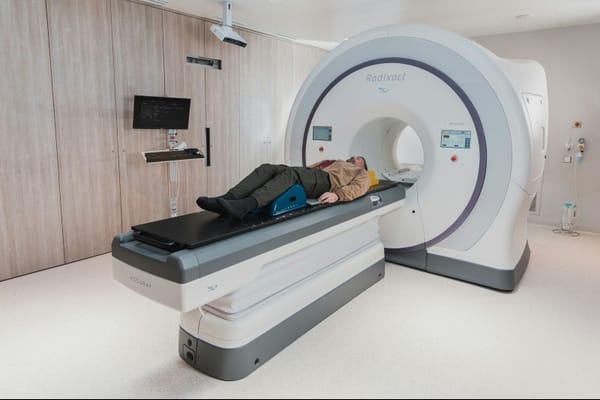Researchers from Linköping University in Sweden and the University of Florida have uncovered a fascinating connection between gut bacteria and brain development in infants. This discovery could revolutionize our understanding of neurodevelopmental disorders and potentially lead to new ways of preventing or treating conditions like autism spectrum disorder (ASD) and attention deficit hyperactivity disorder (ADHD).
Key Takeaways:
- Gut bacteria play a crucial role in infant brain development.
- Certain bacterial metabolites may influence the risk of neurodevelopmental disorders.
- The study found differences in gut bacteria between infants with and without neurodevelopmental disorders.
- This research could lead to new diagnostic tools and treatments for conditions like ASD and ADHD.
- The findings highlight the importance of a healthy gut microbiome in early childhood development.
The Gut-Brain Connection in Infants
Recent scientific research has been shedding light on the intricate relationship between our gut and our brain, often referred to as the "gut-brain axis." Now, a groundbreaking study from Linköping University and the University of Florida has taken this concept a step further by exploring how gut bacteria might influence brain development in infants.
Understanding the Study
The research team, led by Johanna Huoman from Linköping University, set out to investigate whether there were differences in the gut microbiomes of infants who later developed neurodevelopmental disorders compared to those who didn't. They focused on a group of 1,000 infants, collecting stool samples at 1 year of age and following up on their development over the next few years.
Key Findings
The results of the study were eye-opening. The researchers discovered significant differences in the gut bacteria of infants who later developed neurodevelopmental disorders compared to those who didn't. Specifically, they found that certain bacterial metabolites - substances produced by bacteria during their normal metabolic processes - were present in different amounts between the two groups.
The Role of Bacterial Metabolites
One of the most intriguing aspects of this study is the focus on bacterial metabolites. These are chemicals produced by bacteria as they break down food and perform other functions. Some of these metabolites can cross the blood-brain barrier, potentially influencing brain development and function.
Tryptophan and Its Importance
A key metabolite identified in the study was tryptophan. This amino acid is crucial for the production of serotonin, a neurotransmitter often associated with mood regulation. The researchers found that infants who later developed neurodevelopmental disorders had different levels of tryptophan-related metabolites in their gut.
Other Significant Metabolites
In addition to tryptophan, the study identified other metabolites that showed differences between the two groups of infants. These included substances involved in various biological processes, such as energy metabolism and immune function.
Implications for Neurodevelopmental Disorders
The findings of this study have significant implications for our understanding of neurodevelopmental disorders like autism spectrum disorder (ASD) and attention deficit hyperactivity disorder (ADHD).
Potential for Early Diagnosis
One of the most exciting possibilities arising from this research is the potential for early diagnosis of neurodevelopmental disorders. If certain patterns of gut bacteria or metabolites are consistently associated with these conditions, it might be possible to develop screening tests that could identify at-risk infants much earlier than current methods allow.
New Treatment Avenues
Understanding the role of gut bacteria in brain development could also open up new avenues for treatment. For example, it might be possible to develop probiotics or dietary interventions that could help promote healthy brain development by supporting beneficial gut bacteria.
The Importance of the Gut Microbiome
This study underscores the critical importance of a healthy gut microbiome, especially in early childhood. The bacteria in our gut do much more than just help with digestion - they play a crucial role in various aspects of our health, including brain development.
Factors Affecting Gut Health
Many factors can influence the composition of an infant's gut microbiome, including:
- Diet
- Mode of delivery (vaginal birth vs. C-section)
- Breastfeeding vs. formula feeding
- Antibiotic use
- Environmental exposures
Understanding these factors and their impact on gut health could be key to promoting healthy brain development in infants.
Future Research Directions
While this study provides valuable insights, it also opens up many new questions for future research. Some areas that scientists might explore include:
- How do specific strains of bacteria influence brain development?
- Can manipulating the gut microbiome prevent or treat neurodevelopmental disorders?
- What other health outcomes might be influenced by early-life gut bacteria?
- How do environmental factors interact with gut bacteria to affect brain development?
Practical Implications for Parents
For parents and caregivers, this research highlights the importance of supporting a healthy gut microbiome in infants. While more research is needed before specific recommendations can be made, some general strategies that may promote gut health include:
- Breastfeeding when possible, as breast milk contains beneficial bacteria and nutrients that support gut health
- Introducing a variety of healthy foods during weaning to support diverse gut bacteria
- Limiting unnecessary antibiotic use, which can disrupt the gut microbiome
- Providing a healthy, balanced diet rich in fiber and fermented foods as the child grows
Conclusion
The discovery of a potential link between gut bacteria and neurodevelopmental disorders in infants is a significant step forward in our understanding of early brain development. While more research is needed to fully understand this connection and its implications, this study opens up exciting possibilities for early diagnosis and intervention in conditions like ASD and ADHD.
As we continue to unravel the mysteries of the gut-brain axis, it's becoming increasingly clear that a healthy gut is crucial for overall health and development, especially in the early years of life. By supporting gut health in infants and young children, we may be able to promote healthier brain development and potentially reduce the risk of neurodevelopmental disorders.
This groundbreaking research serves as a reminder of the complex and interconnected nature of human biology. It also highlights the importance of continued scientific inquiry into the fascinating world of the microbiome and its impact on human health and development.













Member discussion